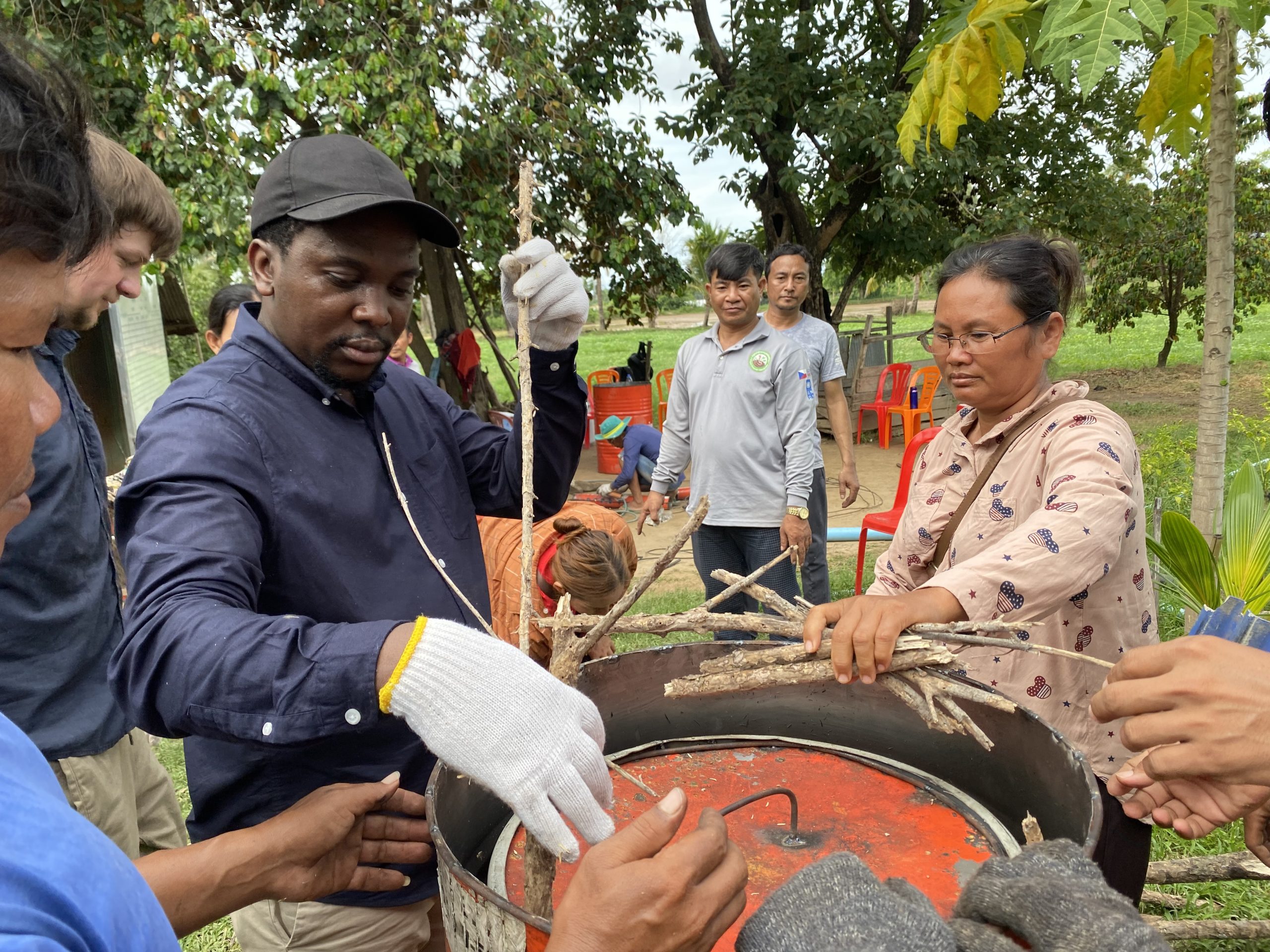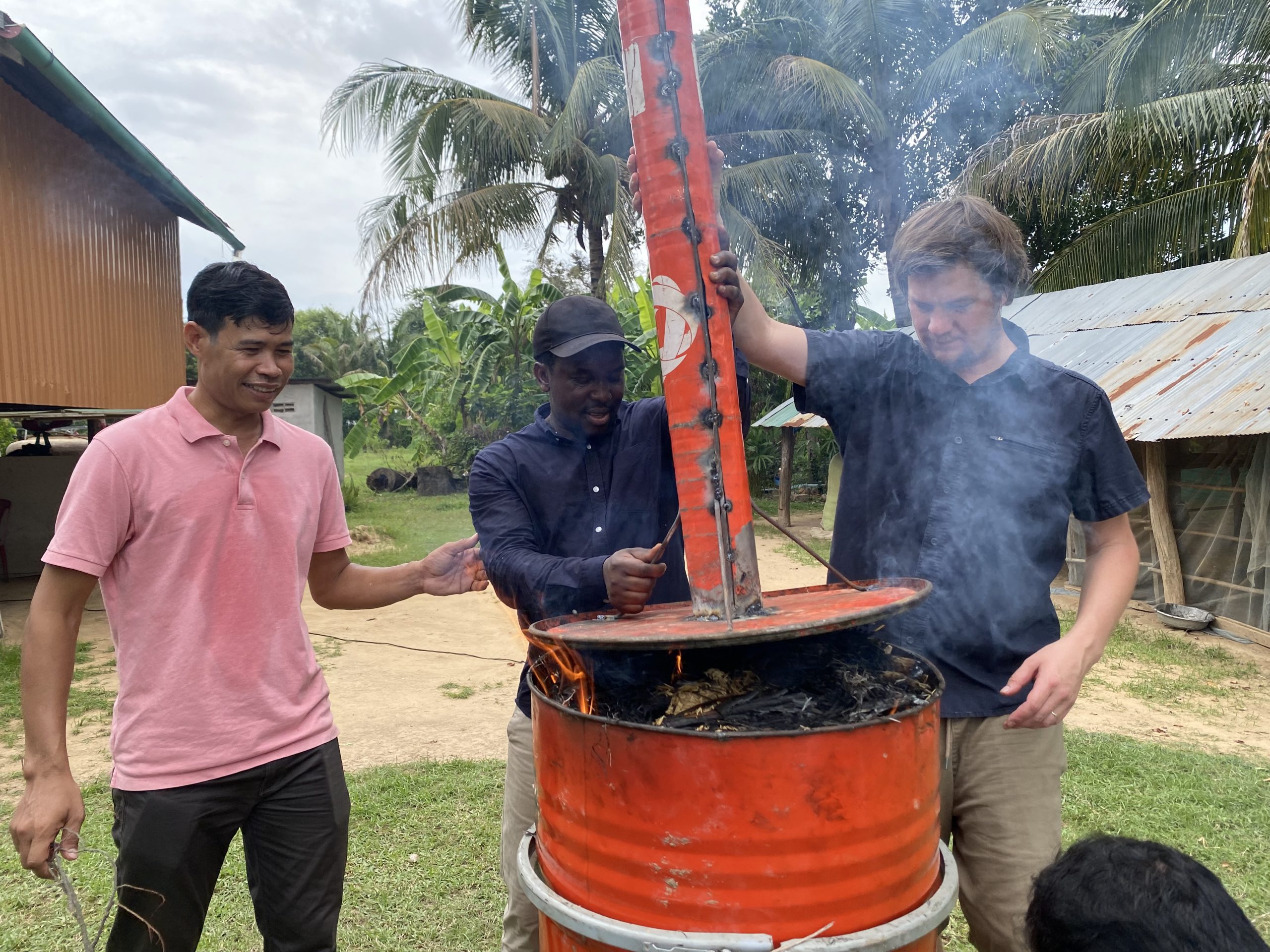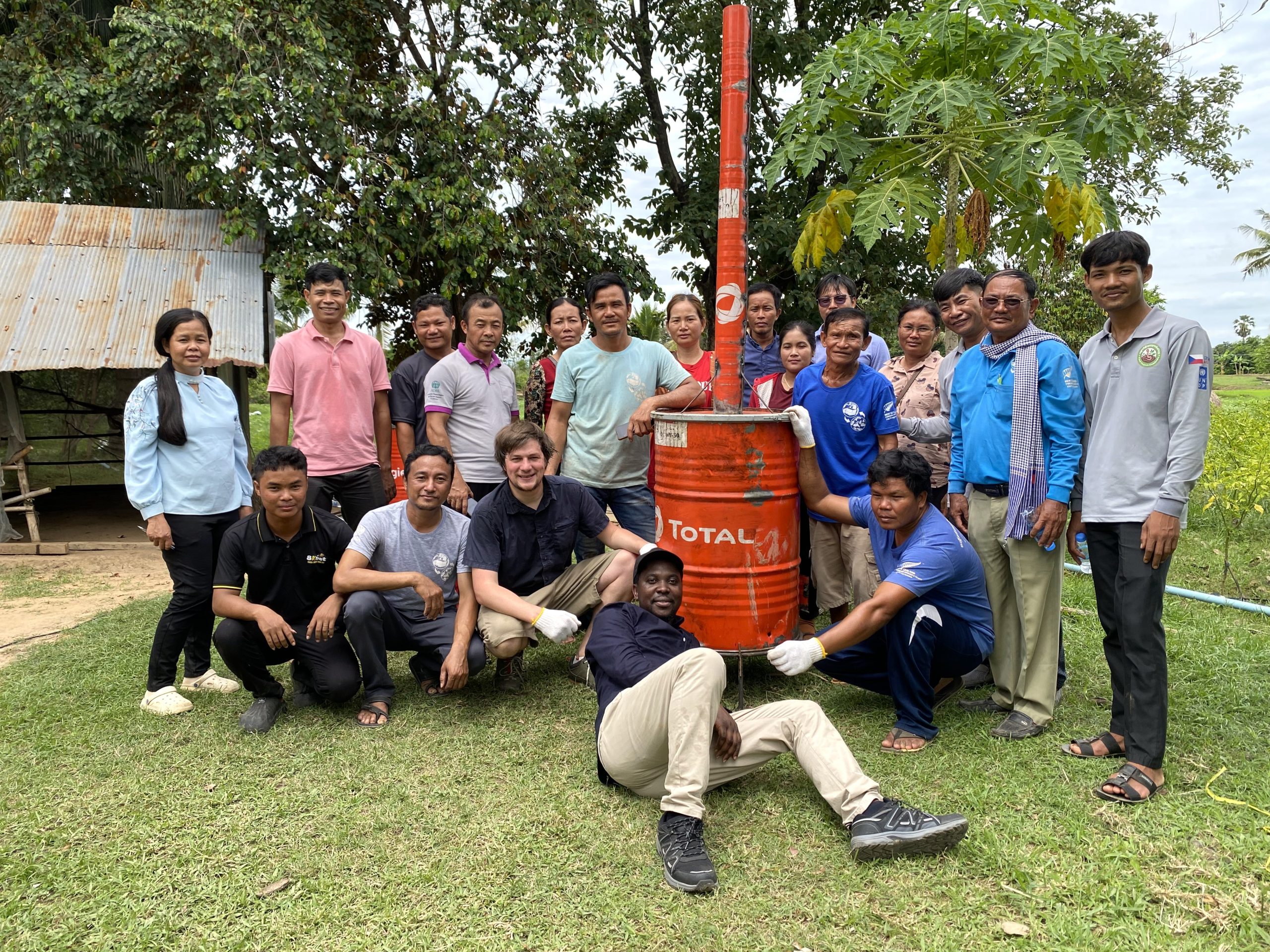| By Kong Phano and Nhim Sophat, ADRA Cambodia
📘 Introduction
From May 26–30, 2025, the V-Biochar Project, in collaboration with experts from the Czech University of Life Sciences, conducted a five-day training course for 19 core participants (6 females). The trainees included local farmers, representatives from the Provincial and District Offices of Agriculture, commune-level officials, schoolteachers, and project staff.

The training sessions were held at the Provincial Department of Commerce, with hands-on demonstrations in Damnak Ampil Village. The main objectives were:
- Build a core V-Biochar enterprise training team.
- Establish functional demonstration sites.
- Strengthen over 40 progressive producer groups (PGs).
- Promote market-driven awareness using private sector approaches.
🧪 Training Overview
Day 1–2: Understanding Biochar & Vermicompost
Participants were introduced to the science, benefits, and local applications of biochar. Topics included:
- What is Biochar?
A carbon-rich product from pyrolysis of organic matter like rice husks, corn stalks, and sugarcane bagasse. It enhances soil fertility, water retention, and reduces greenhouse gas emissions. - Why It Matters in Cambodia:
With abundant agricultural residues and increasing climate stress, biochar offers a sustainable and accessible solution for soil improvement and climate resilience. - Vermicompost Synergy:
When mixed with biochar, vermicompost (produced using earthworms) boosts soil microbial life and nutrient levels—resulting in stronger, healthier crops. - Technology Options:
From simple kilns (like the Kon-Tiki) for smallholders to advanced pyrolysis reactors for large-scale production.

💬 Group Discussions
Participants formed 3 discussion groups to reflect on how they want to engage with the V-Biochar project. Their responses showed strong interest and ownership:
Common Themes Across Groups:
- Desire for more training and expert support.
- Willingness to collect raw materials and participate in biochar production.
- Interest in creating sustainable business models for biochar.
- Motivation to promote biochar benefits in their communities.
Participants also identified various raw materials available locally such as rice straw, tree branches, kitchen waste, corn husks, and cow dung.

🔧 Demonstration Activities
Hands-on sessions guided participants through constructing and using two types of biochar kilns:
- Double Barrel Kiln
Using 55-gallon and 35-gallon drums, this kiln is ideal for small-scale biochar production.
- Galvanized Steel Sheet Kiln
Custom-built using steel sheets and rods—this version suits farmers seeking durable, locally made solutions.
Each setup included safety gear, ventilation chimneys, and proper waste handling to ensure safe and effective production.

🧩 Lessons Learned
- The Czech team’s model is highly adaptable for Cambodian contexts.
- Local farmers and government staff showed strong commitment and can modify or scale the model for broader use.
- Continued training, demonstration sites, and local business models are key to scaling up.
- This model supports environmental sustainability by reducing agricultural waste, improving soil health, and promoting carbon sequestration.

💡 Recommendations
- Encourage the use of gallon metal drums for low-cost biochar production.
- Facilitate local innovations and support farmers to experiment with different raw materials.
- Provide training on kiln construction, safety, and biochar application techniques.
- Build partnerships with research institutes and NGOs to share best practices.
- Explore local and international markets for biochar as a sustainable product.
- Integrate biochar into agroforestry systems to promote biodiversity and ecosystem resilience.
📈 Looking Ahead
The potential for biochar in Cambodia is vast—not only for soil and crop improvement but also for income generation, climate action, and ecological restoration. By investing in practical training, innovation, and community engagement, Cambodia can become a leader in sustainable farming and biochar innovation.

The V-BIOCHAR project is implemented by the United Nations Development Programme (UNDP) with the financial support of the Ministry of Foreign Affairs of the Czech Republic.

